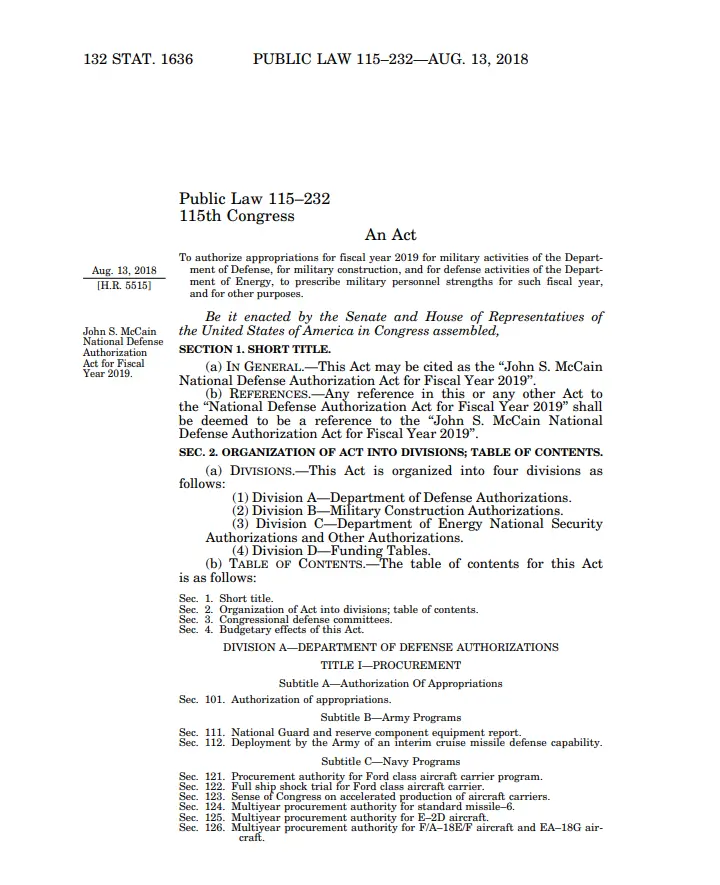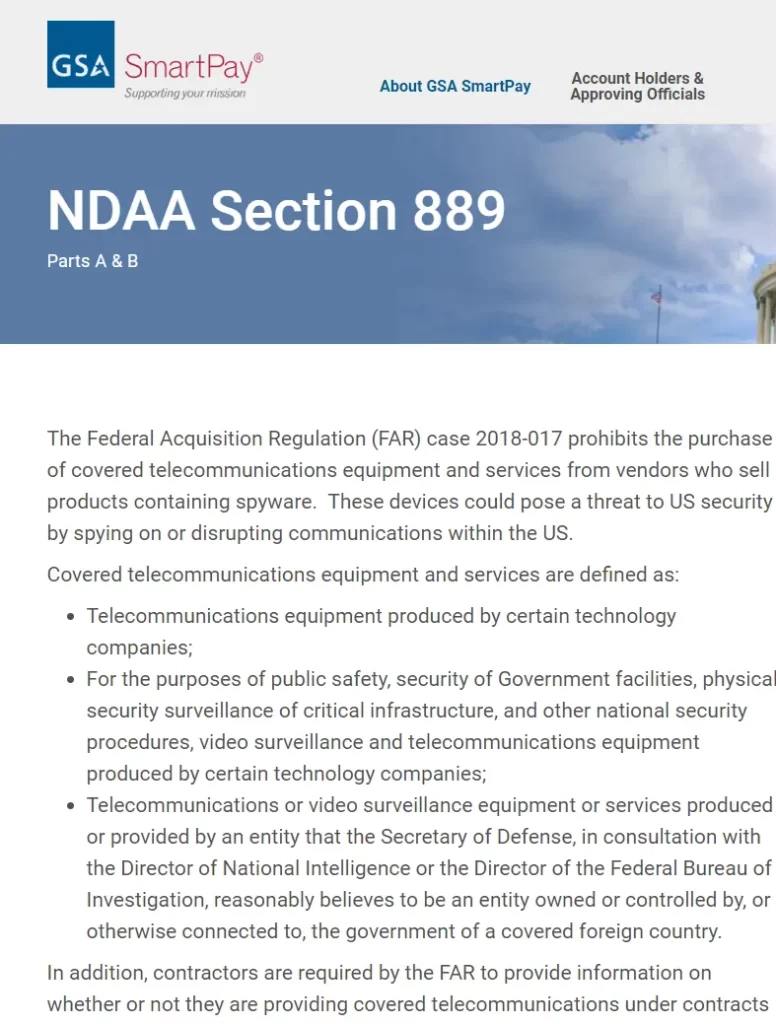PRIVATE VS. PUBLIC PRISONS
H.R.5515 Compliance
H.R.5515 Compliance: What It Means for Correctional Facilities
It is essential that prisons have adequate, high quality security equipment to protect inmates and staff members. However, in the midst of the recent government crackdown on Chinese surveillance and telecommunications equipment, it is unclear where prisons stand on this matter. Provided below is the most up-to-date information on the security requirements for both private and public prisons.
SECURITY REQUIREMENTS
- In common areas such as dining or recreational areas
- In hallways, stairwells, and other places where inmates are escorted
- In booking and identification areas
- In places where all cell block activity can be monitored
- In an optimal position to monitor all angles of the prison yard
- At all entrances and exits to the facility
A properly installed and thorough surveillance setup can help prison administration:
- Improve visual coverage
- Monitor inmate activity
- Provide visual evidence in case of a dispute
- Maintain order in common areas
- Reduce the frequency of assaults
- Prevent drug smuggling
- Monitor correctional officer behavior
- Make transport of inmates safer for inmates and correctional officers
- Enhance search capabilities; modern, digital surveillance technology is easily stored and can be searched through for specific time frames with greater ease than older, bulky cassette tapes
H.R.5515: What it means for Correctional Facilities
The National Defense Authorization Act (NDAA) took effect January 1, 2019. This act particularly pertains to you if you have, or are planning to, install any security surveillance equipment. The NDAA bans the use of certain companies and brand names, such as Dahua and Hikvision, that are commonly used by security surveillance equipment installers. Telecommunications equipment from Huawei, Hytera, and ZTE are also banned. The ban on the procurement and/or use of this equipment applies to any entity that receives federal funding. The use of these products can compromise your school security and make you vulnerable to cyber-attacks. The use of these products could also result in losing federal funding.
PRIVATE VS. PUBLIC PRISONS: Federal Funding
The main difference between these two types of institutions is the way that they receive their funding. This distinction is very important because funding is also at the core of the US Government’s amendment to the NDAA 2019, H.R.5515. Private prisons are for-profit institutions that are run by third parties. They receive funding from the government based on how many inmates they house. Public prisons are run by the state government, and function as non-profits, operating on taxpayer dollars.
On average, incarceration in the United States costs the federal government $182 billion every year. Of that figure, 3.9 billion of that goes towards private prisons, and of that figure, $374 million is pure profit for the private prison.
On the public side, $119 billion of the $182 billion total goes toward the actual running of the public correctional facilities.
These numbers represent what correctional facilities stand to lose, should they be found not in compliance with H.R.5515.
Given that public prisons are funded by taxpayer dollars, they are required to release information periodically to the public regarding the allocation of funds. Therefore public prisons must comply with the HR5515 Section 889 law and NDAA, as well as several other public government facilities.
Private prisons operate on pre-established government contracts. As a result, it is unclear whether or not they are held accountable for the type of surveillance equipment they are using since these prisons are often run by third-party corporations. Other private institutions that receive federal funding such as universities are in similar doubt. Private prisons are not subject to the same publicity laws that govern public prisons.
CONCLUSION
Noone is disputing that prisons require video surveillance; in fact, most people would probably agree that prisons need more vigilant and effective surveillance than anywhere else. However, after the implementation of HR5515, at least some prisons may risk losing essential funding.
For over twenty years, we continue to provide extensive security risk assessments and install complete safety solutions all across Louisiana, Texas, Arkansas, and Mississippi.
Homeland Safety Systems’ components are in conformance and compliance with all applicable laws and regulations, including the National Defense Authorization Act (NDAA). We also hold a Louisiana State Brand Name Contract (LAGOV #4400016619), a Louisiana State Contractors License (#47822), a Texas Security License (#B18896701), an AR Class E Unrestricted License, and a GSA Multiple Award Schedule (GS-07F-063BA), amongst many others.
Homeland Safety Systems surveillance solutions do not use components of Huawei Technologies Company, ZTE Corporation, Hytera Communications Corporation, Hangzhou Hikvision Digital Technology Company, or Dahua Technology Company.
For more information contact us at 888-909-2261 or fill out our contact form here!
Isn't it time to protect our future?
From consultation and design, to installation and maintenance, we integrate our products to provide convienient, quality security solutions that allow for future growth and expandability. Whether you’re starting from scratch or updating an existing system, get started with Homeland Safety Systems today for all of your security needs.



